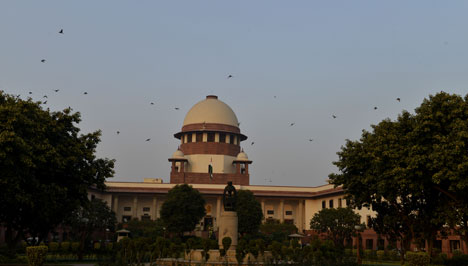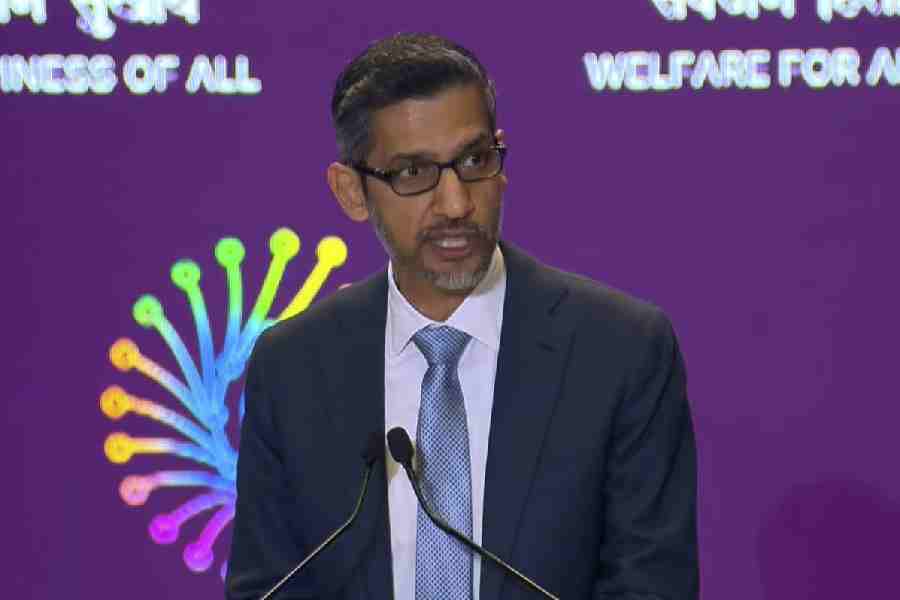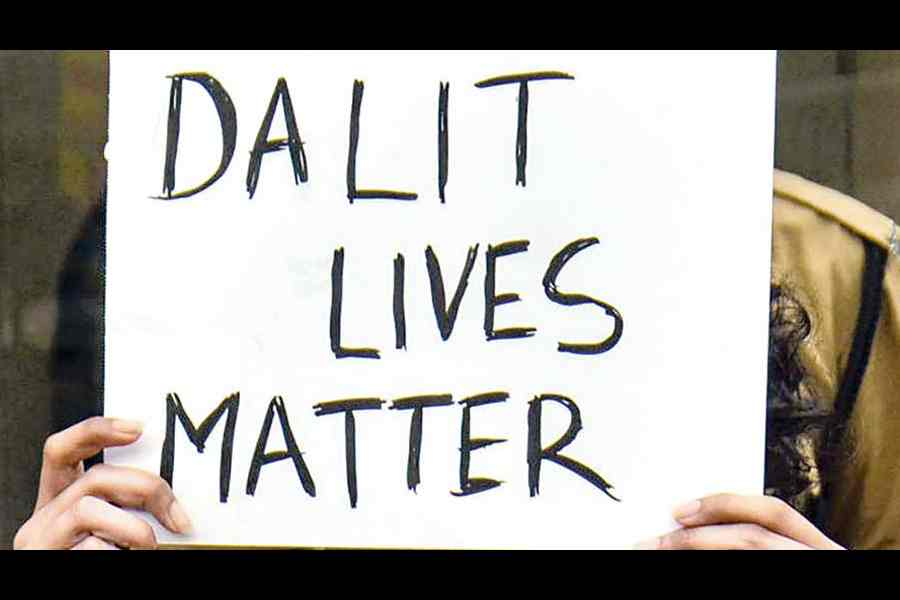
New Delhi: The Supreme Court ruled on Wednesday that Aadhaar cannot be made mandatory for submitting forms for the national medical entrance test, frowned on alleged coercion by utilities and dropped a loud hint on extending the March 31 deadline for linking the cards to various services.
The court limited its interim order to the National Eligibility-cum-Entrance Test (NEET), through which students for undergraduate medical courses are chosen.
The process of submission of application forms for the medical exams ends on March 9. The court said the CBSE, which conducts the exam, should accept alternative proofs of identity such as passport, driving licence and voter identity card instead of insisting on Aadhaar cards.
Attorney-general K.K. Venugopal, representing the Centre, submitted that neither the government nor the Aadhaar issuer had asked the CBSE to make the card mandatory. The attorney-general said the CBSE had on its own volition decided to insist on Aadhaar cards.
However, in the same breath, Venugopal said the authorities had received complaints of a large number of impersonations for the NEET.
The court expressed displeasure after its attention was drawn to a spate of complaints that banks, mobile phone companies and financial institutions were coercing people to link their Aadhaar cards before March 31.
The apex court indicated that it might pass interim orders on March 14 for extending the deadline to avoid confusion. It expressed anguish that despite several earlier interim orders, the government was trying to make Aadhaar mandatory at a time when a five-judge constitution bench was hearing the matter.
"Today if we don't extend (the deadline), there would be uncertainty.... It has to be extended, there is a great state of uncertainty in the country," Justice D.Y. Chandrachud, a part of the constitution bench, told Venugopal. The bench is headed by Chief Justice of India Dipak Misra.
Justice Chandrachud made the observation after the court was informed by several advocates that not just the CBSE but other government authorities were forcing citizens to link their Aadhaar cards for continuance of services.
The bench rejected Venugopal's submission that most of the interim orders were passed by the apex court prior to the passage of the Aadhaar Act in 2016.
"If that is the case, is the government not bound to approach this court for variation of the earlier orders?" Justice Chandrachud asked Venugopal, who did not respond.
The bench passed Wednesday's order while dealing with an urgent application filed by a student, Abid Patel, from Gujarat challenging the CBSE's insistence on the production of Aadhaar cards for submission of the NEET application forms.
The petitioner had moved the apex court after Gujarat High Court refused to interfere with the matter on the ground that the Aadhaar issue was being dealt with by the five-judge constitution bench of the Supreme Court.
Senior advocate Vibha Makhija, appearing for the student, complained that the CBSE had made Aadhaar mandatory despite the apex court passing a series of orders since March 2014, that production of the card cannot be made mandatory for services and benefits until the constitution bench decides on its validity.
Senior advocate Arvind Datar, appearing for some of the petitioners who have assailed the Aadhaar law, sought initiation of contempt proceedings against various government authorities on the ground that despite directions from the court, officials across the country were compelling people to produce Aadhaar cards for various services and also threatening them with disruption of services if the linking was not done by March 31.
Datar complained that senior advocate Shyam Divan, who is also appearing for a batch of petitioners, had not been allowed to open a fixed-deposit policy with the government-owned UCO Bank on the premises of the Supreme Court because of non-production of Aadhaar card.
Another senior advocate, K.V. Viswanathan, complained that there was all-round panic in the country, particularly in the financial markets, as banks and other financial agencies were threatening people with disruption of services if Aadhaar linkage was not done by March 31. He pleaded that an interim order be passed extending the deadline from March 31 to at least April 30.
The Supreme Court indicated that it might pass appropriate directions on March 14 extending the deadline fixed by the Centre for linking of Aadhaar cards to bank accounts, mobile phones, insurance policies and other services.
On Tuesday, attorney-general Venugopal had indicated the government's willingness to extend the deadline but did not specify any particular date.










